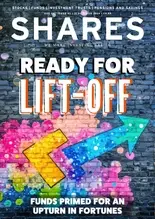
Investors in embattled aircraft engine maker Rolls-Royce (RR.) were dealt another blow on Friday after Standard & Poor’s cut its credit rating to junk status overnight.
That saw the stock head the list of FTSE 100 losers on Friday, plunging around 10% to 287.8p. That values the company at around £5.5bn.
WHAT ‘JUNK’ MEANS FOR INVESTORS
Credit rating agencies like S&P, Moody's and others, classify companies’ ability to repay debt and maintain promised income on corporate bonds sold to investors. Ratings are split into batches, with the highest ranked considered ‘investment’ grade, and bought by mainstream funds.
HOW CREDIT IS RATED
| Rating | What it means | Grade |
| AAA | Extremely strong capacity to meet financial obligations | Investment |
| AA | Very strong capacity to meet financial obligations | Investment |
| A | Strong capacity to meet financial obligations, but somewhat susceptible to adverse economic conditions and changes in circumstances | Investment |
| BBB | Adequate capacity to meet financial commitments, but more subject to adverse economic conditions | Investment |
| BB | Less vulnerable in the near-term but faces major ongoing uncertainties to adverse business, financial and economic conditions | Speculative |
| B | More vulnerable to adverse business, financial and economic conditions but currently has the capacity to meet financial commitments. | Speculative |
| CCC | Currently vulnerable and dependent on favourable business, financial and economic conditions to meet financial commitments | Speculative |
| CC | Highly vulnerable; default has not yet occurred but is expected to be a virtual certainty | Speculative |
| C | Currently highly vulnerable to non-payment, and ultimate recovery is expected to be lower than that of higher rated obligations | Speculative |
| D | Covenant breach or administration | Speculative |
| NR | Not rated, highest risk | NR |
| Source: Corporate Finance Institute | ||
There are multiple ratings below investment grade, illustrating the increasing levels of risk of default, but it is all referred to as ‘junk’ in trading circles, with the most speculative and high risk bonds not rated at all.
Credit ratings below investment grade make it more expensive for companies to raise fresh capital, pushing up borrowing costs.
BLEAK PROSPECTS
Overnight, S&P downgraded Rolls’ long-term foreign and local currency ratings by one notch to BB, below the BBB investment grade level. This was in response to Rolls-Royce’s worsening near-term prospects as whole fleets of planes remain grounded.
On Wednesday (27 May) Rolls-Royce unveiled a drastic shake-up in response to the Covid-19 pandemic, including ‘at least 9,000’ jobs cuts, as it warned that it anticipates ‘several years’ of struggle for the commercial aviation industry that has already wiped demand for its plane engines and slashed maintenance and servicing.
Rolls-Royce’s increasingly bleak prospects saw hedge fund AKO Capital sell its entire 5.2% stake in the engine maker, announced on Thursday.




